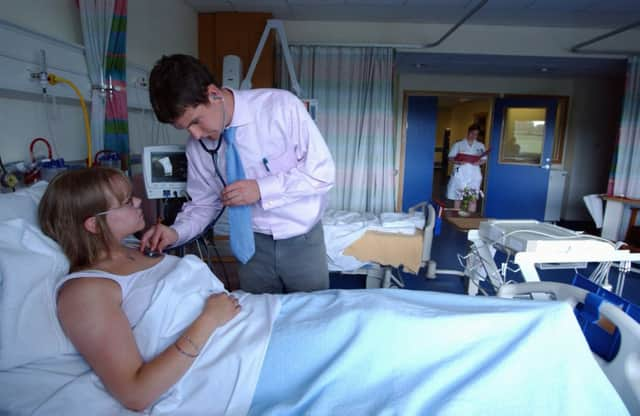Lyndsay Buckland: Moving of patients has no gain


Then you suddenly find yourself being moved to another ward. This is not for your benefit, but to help the hospital cope with surges in demand. You’re confused, agitated and worried. And you’re now on a ward that does not specialise in your condition. You have become a “boarder”.
Hospitals are working to eradicate boarding after several eminent experts, including the Royal College of Physicians of Edinburgh, highlighted concerns about the impact it can have on patients, affecting their experience and outcomes.
Advertisement
Hide AdAdvertisement
Hide AdFor several years boards have been required to monitor levels of boarding to record progress in cutting the number of patients being moved for non-clinical reasons.
But flaws in their recording systems have been identified by Labour MSP Dr Richard Simpson, who asked boards to provide figures on the numbers of patients being boarded out between 11pm and 6am. Particular concerns have been raised about patients being moved at night when they are trying to sleep, potentially affecting their recovery.
The results were concerning, with only half of boards able to provide this data. Even then, in some cases there were caveats as to what this data showed – did it include those also moved for good clinical reasons, for example, and were the times the moves were recorded correct?
Those unable to provide data on boarding during this time period include many of our largest boards, such as Greater Glasgow and Clyde and Lothian.
Based on the limited data he received, Dr Simpson estimated that at least 13,000 patients were moved between 11pm and 6pm last year, and the number has been increasing year on year.
He has particular concerns about the boarding of patients with dementia – a practice which is discouraged but which reports have shown does still happen.
Dr Simpson now wants the Scottish Government to look more closely at how boarding is monitored as we move towards a time – probably some way off – where patients are only moved for their own clinical benefit.
If we are to eradicate boarding we surely need to know as much as possible about why and when patients are moved.
Advertisement
Hide AdAdvertisement
Hide AdThis week a meeting in Edinburgh discussed how Scottish health statistics could be improved. Making sure boards have standardised ways of monitoring something as important as boarding seems a good place to start.